These errors are harming pet birds everywhere.
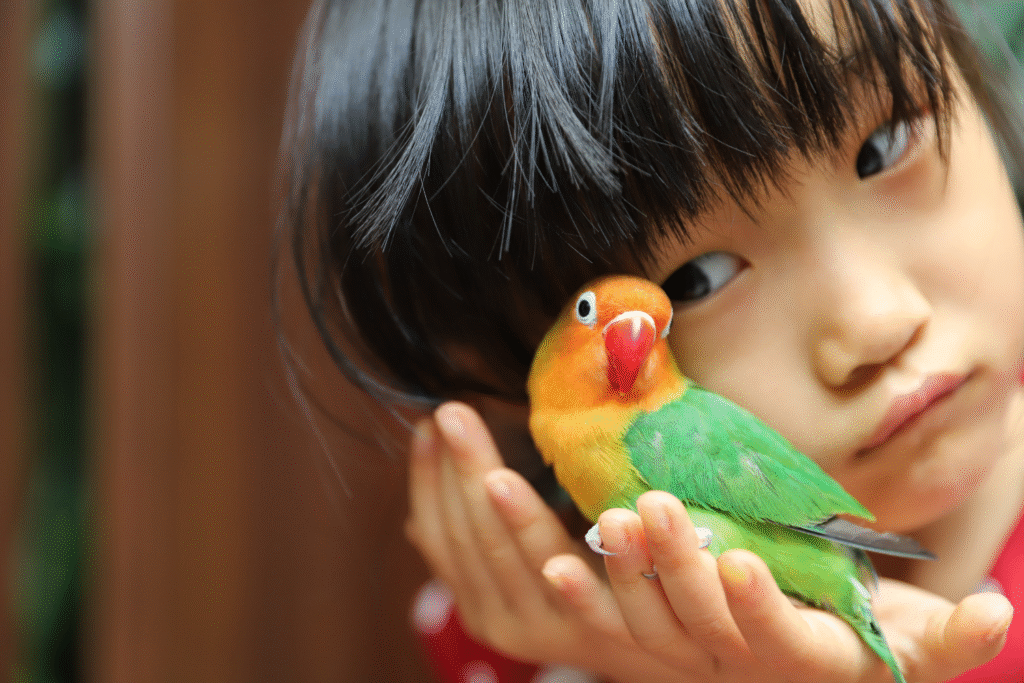
Bird ownership appears deceptively simple until you realize how many things can go wrong with seemingly innocent decisions. These intelligent, sensitive creatures have complex needs that many well-meaning owners completely misunderstand, leading to behavioral problems, health issues, and shortened lifespans. The mistakes often stem from treating birds like other pets or following outdated advice that’s been passed down through generations of bird keepers. Recognizing these common errors can transform your relationship with your feathered companion and dramatically improve their quality of life.
1. Cage sizes remain far too small for healthy birds.
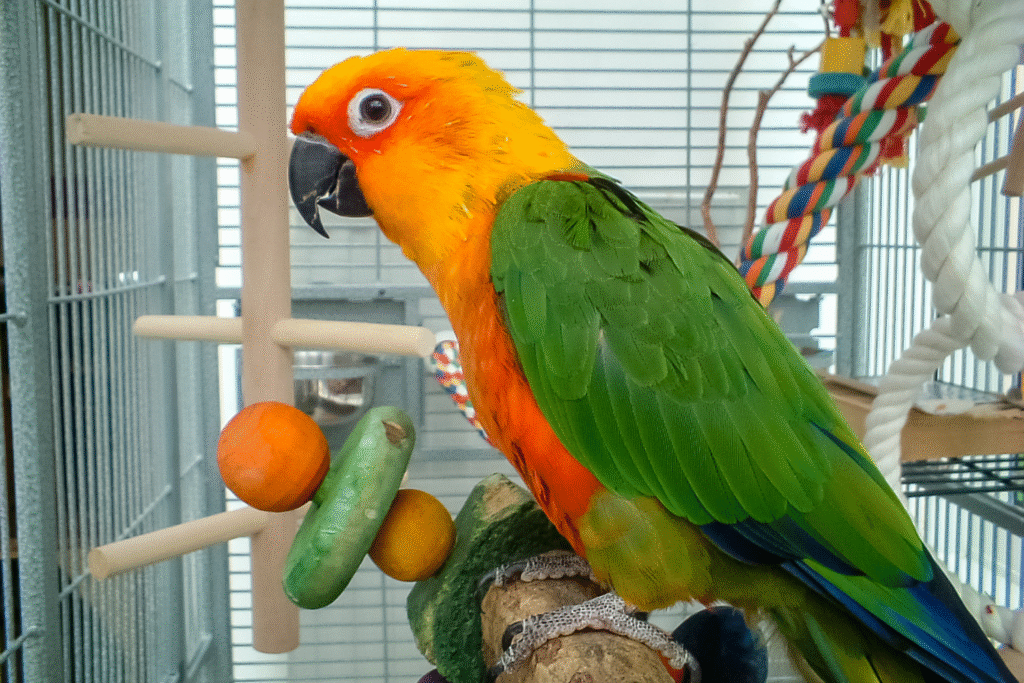
Most commercial bird cages are designed for profit margins rather than bird welfare, creating cramped living spaces that would be considered cruel for any other pet. Birds need enough room to fully extend their wings without touching the sides, yet countless owners squeeze large parrots into cages barely wide enough for perching. According to research published by the Association of Avian Veterinarians, minimum cage dimensions should allow for short flights between perches, not just basic movement. The psychological impact of inadequate space manifests as feather plucking, aggression, and repetitive behaviors that signal deep distress in these naturally active creatures.
2. Perch variety gets completely ignored in most bird setups.
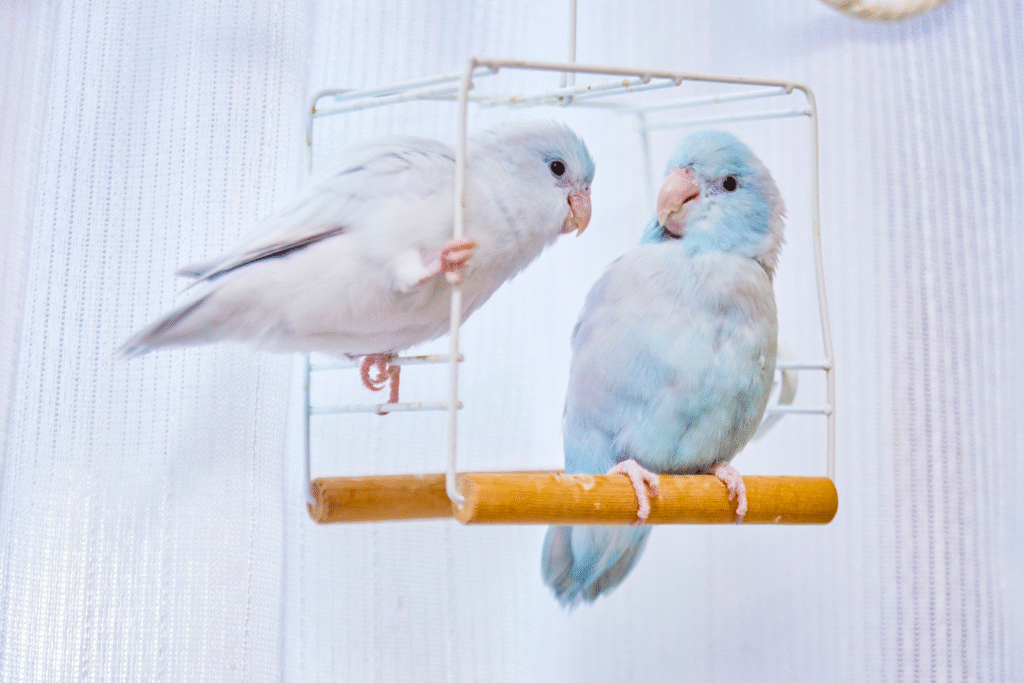
Single-diameter dowel perches dominate most bird cages, creating a monotonous environment that fails to exercise different muscles in their feet and legs. Wild birds spend their days gripping branches of varying thickness, texture, and material that naturally trim their nails and strengthen their grip. Foot problems, arthritis, and pressure sores develop when birds stand on identical surfaces day after day, as documented by veterinary orthopedic specialists at UC Davis School of Veterinary Medicine. Natural wood branches, rope perches, and mineral perches should replace those smooth wooden dowels that offer no stimulation or health benefits to your bird.
3. Social isolation damages birds more than owners realize.
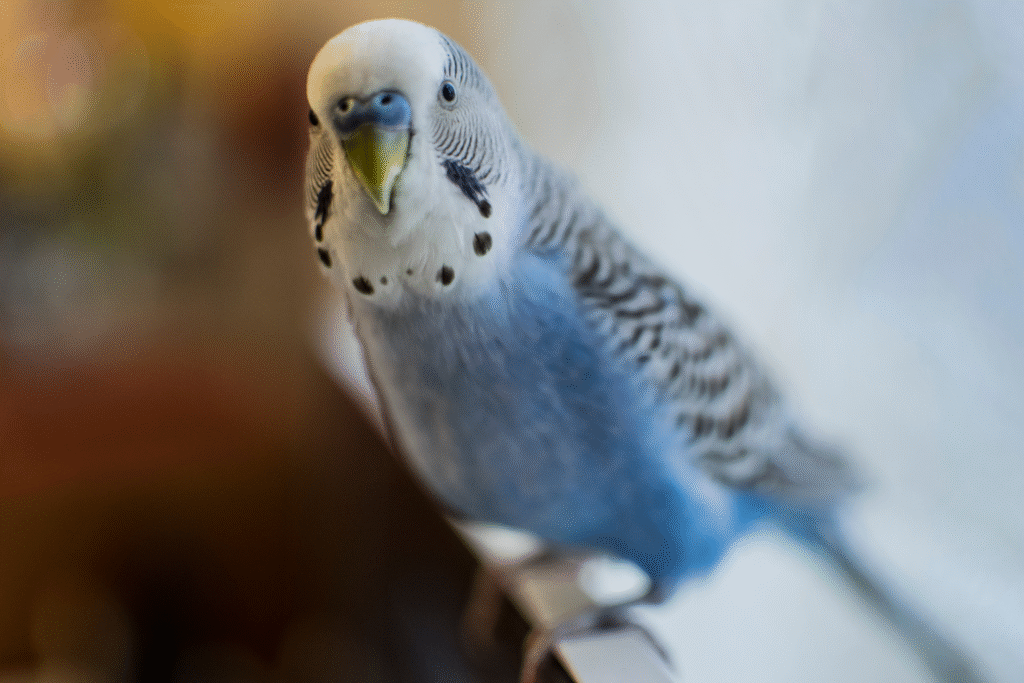
Birds are flock animals that suffer profound psychological damage when kept in isolation, yet many owners treat them like living decorations rather than social beings. The practice of placing single birds in separate rooms or ignoring them for hours creates chronic stress that manifests in destructive behaviors. According to behavioral studies conducted at the University of California’s Animal Behavior Graduate Group, isolated birds develop anxiety disorders equivalent to severe depression in humans. Even single birds need daily interaction, mental stimulation, and inclusion in household activities to maintain their psychological well-being and prevent the development of neurotic behaviors.
4. All-seed diets create malnutrition despite seeming perfectly natural.
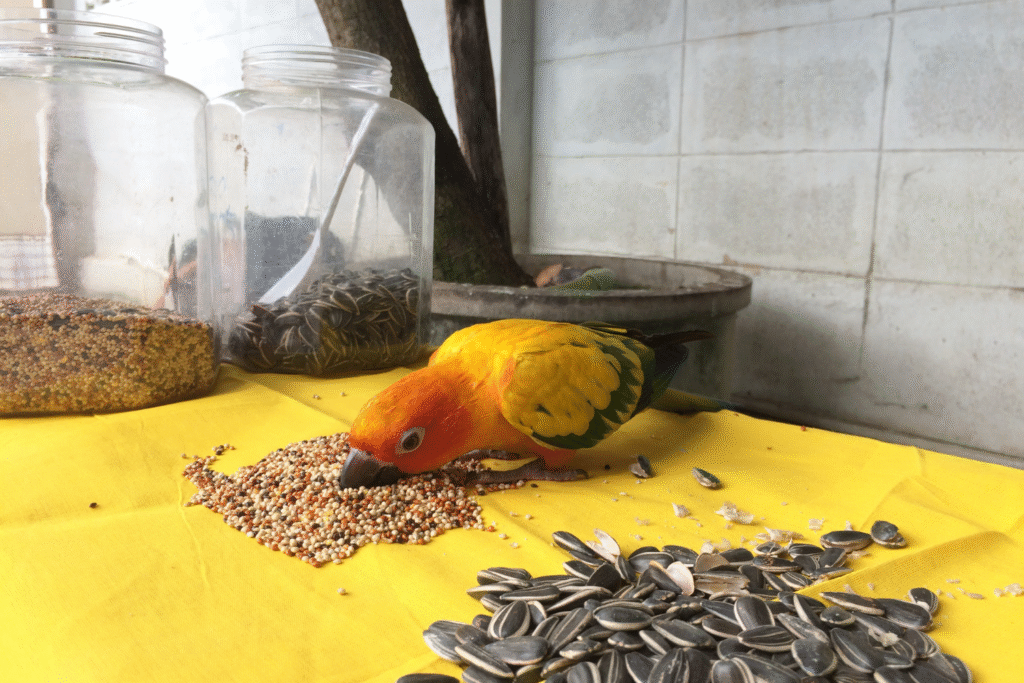
Commercial seed mixes marketed as complete bird food actually provide terrible nutrition that slowly kills birds through vitamin deficiencies and organ damage. Seeds are essentially bird junk food, high in fat and low in essential nutrients that wild birds obtain from diverse sources like fruits, vegetables, and insects. Pelleted diets formulated by avian nutritionists provide balanced nutrition, while fresh foods offer variety and mental stimulation during foraging behaviors. The transition from seeds requires patience since birds often refuse healthier options initially, but persistence pays off with improved feather quality, energy levels, and dramatically extended lifespans.
5. Teflon cookware poisoning kills birds within minutes of heating.
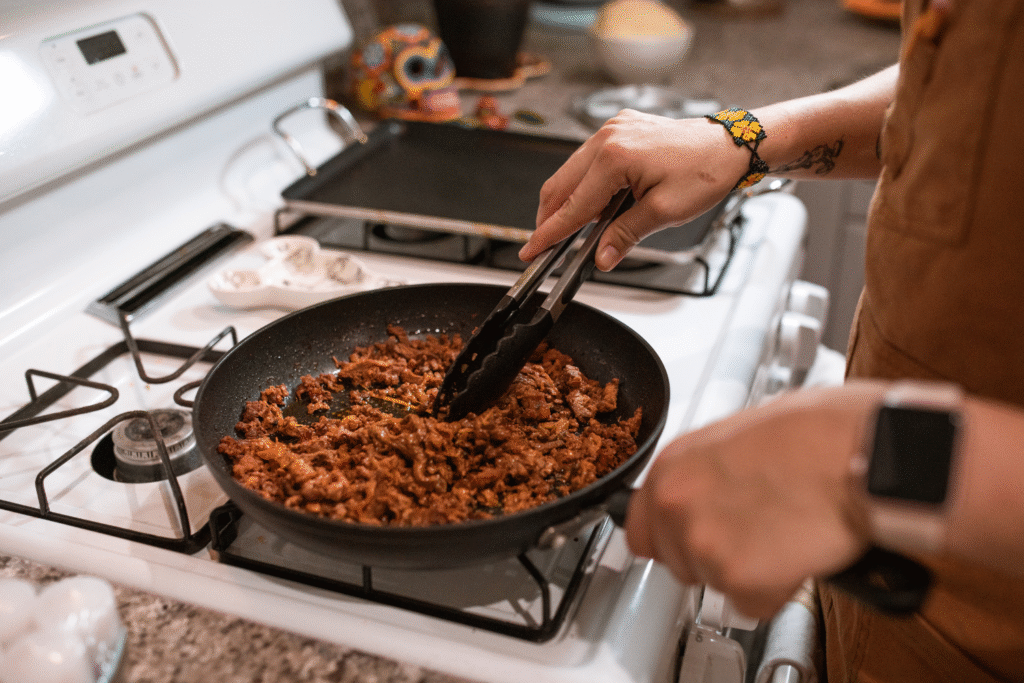
Non-stick cookware releases invisible fumes that are instantly lethal to birds, yet this information rarely reaches new bird owners until tragedy strikes. Polytetrafluoroethylene, the coating on non-stick pans, breaks down at temperatures easily reached during normal cooking and releases gases that cause immediate respiratory failure in birds. According to VCA Animal Hospitals, birds have a unique, highly efficient respiratory system that makes them extremely sensitive to inhaled toxins, and sadly, sudden death may be the only sign of PTFE poisoning. The fumes affect birds so quickly that owners often find their pets dead before realizing what happened. Stainless steel, cast iron, and ceramic cookware provide safe alternatives that won’t turn your kitchen into a death trap for your feathered family members.
6. Bathroom visits with birds create serious health hazards.
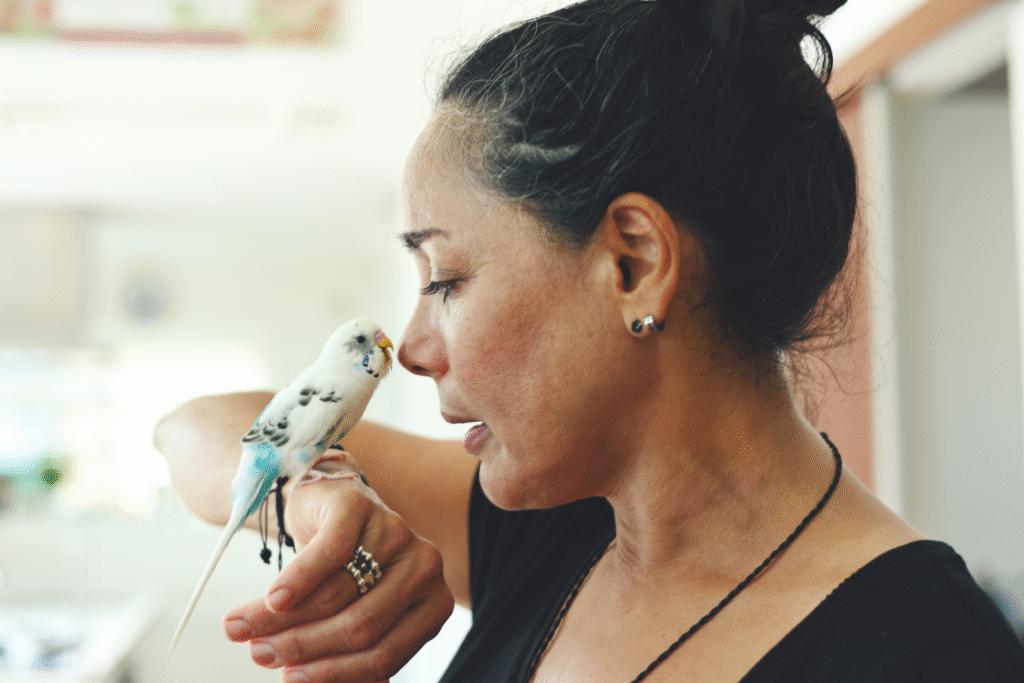
Many bird owners bring their pets into bathrooms during showers or daily routines, not realizing this environment poses multiple threats to avian health. Aerosol products, cleaning chemicals, and air fresheners contain compounds that damage sensitive bird respiratory systems even in small concentrations. Hot shower steam can cause respiratory distress, while toilet water presents drowning risks for curious birds who investigate everything with their beaks. The humidity fluctuations and chemical exposure in bathrooms create a toxic environment that can cause immediate reactions or long-term health problems that develop gradually over time.
7. Night lighting disrupts essential sleep patterns that birds require.
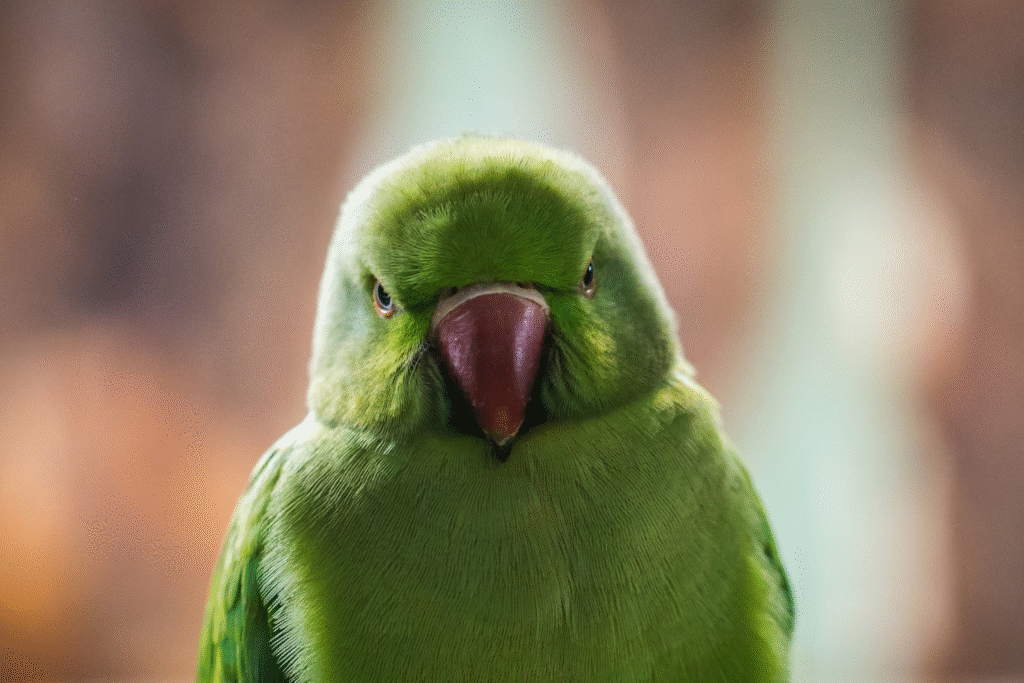
Birds need 10-12 hours of uninterrupted darkness for proper rest, hormone regulation, and immune system function, yet many owners keep lights on or allow electronic device screens to illuminate their pets’ sleeping areas. Chronic sleep deprivation leads to aggressive behavior, feather plucking, and reproductive problems in birds kept under constant artificial lighting. Even small amounts of light can disrupt their natural circadian rhythms, leading to stress hormones that suppress immune function and increase susceptibility to infections. Covering cages completely at bedtime and maintaining consistent sleep schedules supports natural behaviors and prevents many behavioral problems that stem from exhaustion.
8. Wing clipping debates ignore individual bird personalities and needs.

The practice of trimming flight feathers remains controversial, with many owners following blanket advice rather than considering their specific bird’s temperament, living situation, and safety requirements. Some birds become depressed and fearful when they lose their ability to fly, while others benefit from gentle clipping that prevents dangerous escapes or collisions with windows and ceiling fans. The decision should involve careful consideration of the bird’s personality, the safety of the environment, and the owner’s experience level rather than following one-size-fits-all recommendations that ignore individual circumstances and needs.
9. Temperature fluctuations stress birds more than owners anticipate.
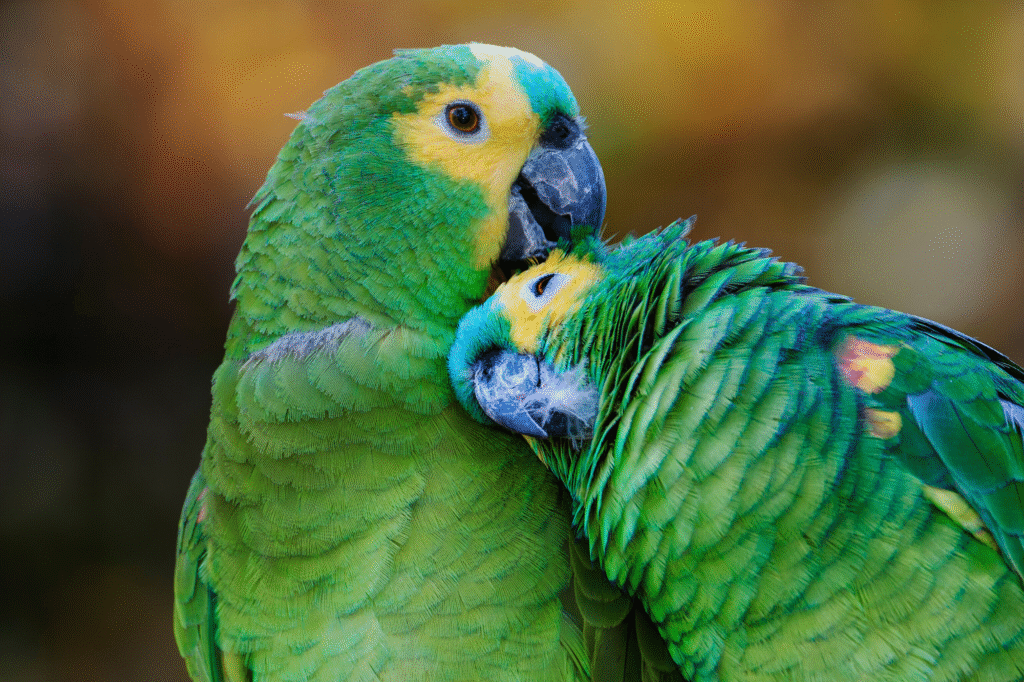
Drafts, air conditioning vents, and heating sources create temperature variations that can seriously compromise bird health, especially for tropical species adapted to stable climates. Birds positioned near windows experience temperature swings throughout the day that stress their systems and increase susceptibility to respiratory infections. Space heaters and heating pads designed for other pets can overheat birds or create hot spots that cause burns on sensitive feet. Maintaining stable temperatures between 65-80 degrees Fahrenheit and avoiding direct exposure to heating and cooling sources helps prevent temperature-related stress and illness.
10. Emergency preparedness gets completely overlooked until disasters strike.
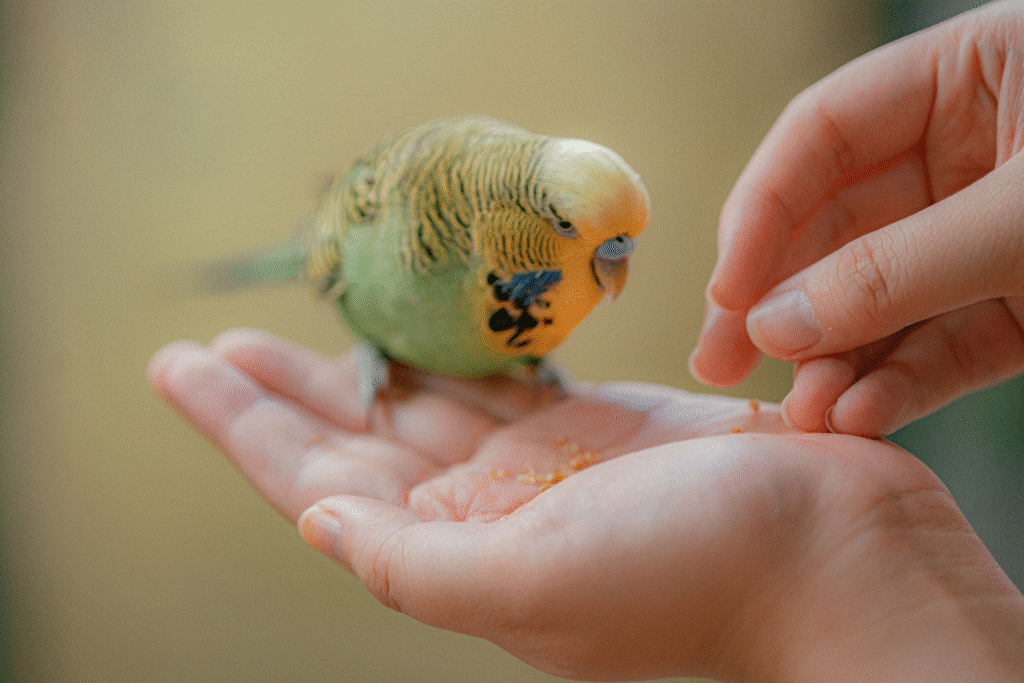
Most bird owners have no plan for evacuating or caring for their pets during emergencies, leaving these vulnerable animals behind during evacuations or power outages that can quickly become life-threatening. Birds require specialized carriers, emergency food supplies, and backup heating sources that differ completely from preparations needed for cats and dogs. Natural disasters, house fires, and power outages can kill birds within hours if owners haven’t prepared appropriate emergency supplies and evacuation procedures. Creating emergency kits with carriers, food, water, and contact information for avian veterinarians ensures your feathered family members survive unexpected crises that could otherwise prove fatal.
